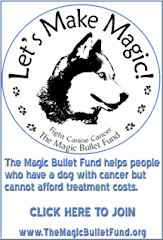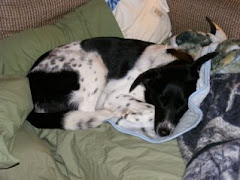What do you feed your dog? Many people do not give it much thought. They pick up a bag at the grocery store labeled “Dog Food”. It is food for dogs; therefore it must be good for them. It must be all they need. Why would someone sell food for dogs that is not good for them? Why indeed?
For too long, dogs have been treated as second class citizens. After all, they are only dogs. Mere animals. Man took the independent wolf, an animal that could fend for himself and feed himself and turned him into a house pet that depends on us for his every need. Humans are responsible for providing dogs with food that is healthy and safe for them to eat.
Most of us are not well versed in canine nutrition. For years I fed Wulf Pro Plan on the recommendation of a veterinarian. Surely a veterinarian wouldn’t steer me wrong. Has a vet ever told you that it is not good for you to feed your dog “people food”? Is people food really that different from dog food? Have you ever seen a wolf at the grocery store buying a bag of dog food? Wolves ate meat; wolves did not eat meat by-products. Wolves most certainly didn’t fill up on corn and other grains every day. Wolves and dogs are meant to eat mainly meat. Another common myth is that dogs should eat the same thing all the time. If you don’t feed them the same thing all the time, dogs will become finicky. Would you want to eat the same thing all the time?
If you really want to know what has traditionally gone into dog foods then you must read "Food Pets Die for: Shocking Facts about Pet Food" by Ann M. Martin. The pet food industry has been keeping awful secrets from the general public. Ann M. Martin has been investigating the pet food industry since 1990, and she has exposed the horrors of this industry. Many major pet food companies fund ongoing animal research in the name of so-called nutritious pet food. Ann Martin was the first to expose the fact that euthanized cats and dogs are common ingredients in many commercial pet foods as are diseased cattle, contaminated meat, moldy grain, road kill, and rancid fats from restaurants. I won’t go into more detail here, because I don’t want you to stop reading. Some things in the book made my physically ill. I was appalled and outraged at what I may have fed to Wulf. I think the bottom line is this: If it is not safe for you to eat, why would it be safe for your dog to eat?
I am going to give a few examples of low quality dog food ingredients in popular brands of dog foods (As reported by: http://www.dogfoodanalysis.com/).
Alpo Lamb Meal, Rice & Barley Dog Food - Ground Yellow Corn, Digest of Chicken By-Products, Poultry By-Product Meal, Animal Fat(stabilized with BHA), Lamb Meal, Brewer's Rice, Ground Barley, Soybean Meal, Corn Gluten Meal, Whole Chicory Root, Salt, Potassium Chloride, Zinc Sulfate, Ferrous Sulfate, Copper Sulfate, Manganese Sulfate, Potassium Iodide, Sodium Selenite, Choline Chloride, Vitamin E, A, B12 & D3 Supplements, Niacin, Calcium Pantothenate, Riboflavin Supplement, Thiamin Mononitrate, Pyridoxine Hydrochloride, Folic Acid, Biotin.
Pedigree Complete Nutrition (adult dog food): Ground yellow corn, meat and bone meal, corn gluten meal, chicken by-product meal, animal fat (preserved with bha/bht), wheat mill run, natural poultry flavor, rice, salt, potassium chloride, caramel color, wheat flour, wheat gluten, vegetable oil, vitamins (choline chloride, dl-alpha tocopherol acetate [source of vitamin e], l-ascorbyl-2-polyphosphate [source of vitamin c*], vitamin a supplement, thiamine mononitrate [vitamin b1], biotin, d-calcium pantothenate, riboflavin supplement [vitamin b2], vitamin d3 supplement, vitamin b12 supplement), trace minerals (zinc sulfate, copper sulfate, potassium iodide).
Nestle Purina Beneful Healthy Harvest: Ingredients: Ground yellow corn, corn gluten meal, whole wheat flour, animal fat preserved with mixed-tocopherols (form of Vitamin E), soy protein concentrate, soybean meal, pearled barley, brewers rice, tricalcium phosphate, sugar, water, animal digest, sorbitol, phosphoric acid, salt, potassium chloride, L-Lysine monohydrochloride, calcium carbonate, sorbic acid (a preservative), dried spinach, dried sweet potatoes, dried apples, dicalcium phosphate, choline chloride, calcium propionate (a preservative), DL-Methionine, added color (Red 40, Yellow 5, Blue 2, Yellow 6), zinc sulfate, ferrous sulfate, Vitamin E supplement, manganese sulfate, Vitamin A supplement, niacin, Vitamin B-12 supplement, calcium pantothenate, riboflavin supplement, copper sulfate, biotin, garlic oil, thiamine hydrochloride, pyridoxine hydrochloride, thiamine mononitrate, folic acid, Vitamin D-3 supplement, menadione sodium bisulfite complex (source of Vitamin K activity), calcium iodate, sodium selenite.
Diamond Hi-Energy Sporting Dog Formula: Ingredients: Chicken by-product meal, ground corn, rice bran, wheat flour, chicken fat (preserved with mixed tocopherols), meat meal, beet pulp, natural chicken flavor, fish meal, vitamins and minerals.
Hill's Science Diet Advanced Protection Canine Adult: Corn meal, chicken by-product meal, soybean meal, animal fat (preserved with mixed tocopherols and citric acid), flaxseed, chicken liver flavor, dried egg product, dried carrots, dried spinach, dried grape pomace, dried tomato pomace, dried citrus pulp, vegetable oil, oat fiber, taurine, L-carnitine, preserved with mixed tocopherols and citric acid, minerals (salt, potassium chloride, ferrous sulfate, zinc oxide, copper sulfate, manganous oxide, calcium iodate, sodium selenite), alpha-lipoic acid, rosemary extract, beta-carotene, vitamins (choline chloride, vitamin A supplement, vitamin E supplement, vitamin D3 supplement, L-ascorbyl-2-polyphosphate (a source of Vitamin C), niacin, thiamine mononitrate, calcium pantothenate, pyridoxine hydrochloride, riboflavin, folic acid, biotin, vitamin B12 supplement).
Do you see the trend here? The following analysis of some of the ingredients listed in the foods above come directly from www.dogfoodanalysis.com.
Corn is a problematic grain that is difficult for dogs to digest and thought to be the cause of a great many allergy and yeast infection problems.
The AAFCO definition of corn gluten meal is “the dried residue from corn after the removal of the larger part of the starch and germ, and the separation of the bran by the process employed in the wet milling manufacture of corn starch or syrup, or by enzymatic treatment of the endosperm”. In plain English, that which remains after all the nutritious bits have been removed.
It is impossible to ascertain the quality of by-products and these are usually products that are of such low quality as to be rejected for use in the human food chain, or else are those parts that have so little value that they cannot be used elsewhere in either the human or pet food industries. The AAFCO definition of chicken by-product meal is “a meal consisting of the ground, rendered, clean parts of the carcass of slaughtered chicken, such as necks, feet, undeveloped eggs and intestines, exclusive of feathers, except in such amounts as might occur unavoidable in good processing practice.”
Soy is a poor quality source of protein in dog food, and a common cause of allergy problems. Some believe that it is the number 1 cause of food allergies in dogs (outstripping even wheat).
Rice bran is a grain fragment, whilst wheat is believed by many to be the leading cause of food allergies in dog food. In flour form (in dog food, commonly a byproduct of human food production) this is a grain fragment we consider primarily filler.
Animal fat is a further low quality ingredient and is impossible to determine the source. Unidentified ingredients are usually very low quality. AAFCO define this as "obtained from the tissues of mammals and/or poultry in the commercial processes of rendering or extracting. It consists predominantly of glyceride esters of fatty acids and contains no additions of free fatty acids. If an antioxidant is used, the common name or names must be indicated, followed by the words "used as a preservative". It is a concern to see a fat as the fourth ingredient. Research at Purdue University has identified fat in the top four ingredients of a dry food as a factor that increases the risk of bloat in large breed dogs. Smaller breeds are untested.
Beet pulp is controversial filler. It is a by-product, being dried residue from sugar beets which has been cleaned and extracted in the process of manufacturing sugar. It is a controversial ingredient in dog food, claimed by some manufacturers to be a good source of fiber, and derided by others as an ingredient added to slow down the transition of rancid animal fats and causing stress to kidney and liver in the process. We note that beet pulp is an ingredient that commonly causes problems for dogs, including allergies and ear infections, and prefer not to see it used in dog food.
Meat and bone meal is a low quality meat product for which it is impossible to determine the source.
Some foods use chemical preservatives (BHA, BHT) which is believed to be carcinogenic, and is banned from use in human food. It also uses artificial colorants.
What it all boils down to is that your dog should be eating meat. Not meat by-products, not corn, not wheat, but mainly meat. Many dog food labels are intentionally vague so the consumer doesn’t really know what they are feeding to their poor unsuspecting dog. In my next blog entry I will give of examples of what dog foods you should be feeding your pets.
Subscribe to:
Post Comments (Atom)











No comments:
Post a Comment